Review for Black Belt
Introduction
MVM are dishing up back-to-back Martial Arts movies. They end July with the kung fu saturated Gallants, while August kicks off with Black Belt, a.k.a. Kuro Obi, which focuses on the Japanese martial art of karate. Other than the Karate Kid movies, I've rarely seen karate on celluloid, certainly not karate in a positive light. Usually karate practitioners are cast as villains in the kung fu movies, evil foreigners coming over and throwing their weight around until they get taught the error of their ways by an aspiring Wing Chun aficionado. Also, the Japanese action movies that have made their way to the West tend to avoid karate, with their action stars tooled up with swords, or guns, or wielding the same kung fu that is so popular across the South China Sea. But Black Belt offers proper karate, with not a bottle of car wax in sight.
1932, and Japan has taken control of Manchuria, and its arrogant, corrupt military is throwing its weight about. They are taking over karate dojos throughout the land. The Shibahara dojo is on the list, but it hardly seems a prime target at first glance. After all, the teacher, Eiken Shibahara has but three students, Taikan, Giryu, and Choei. But these three students are more than enough to deal with and humiliate the squad sent to evict them from the premises. It's a short-lived reprieve though, as Eiken sickens and dies before he can name his successor. The military return, this time determined to learn from and master the karate that previously bested them
It was Eiken's dying wish that the Black Belt that signifies mastery be passed on to he who best assimilated his pacifistic teachings. He taught karate so that it wouldn't be used for attack, but it's something that Taikan never learned, and he accepts the army's path, teaches them karate for offence, and even helps them take over the other karate dojo schools that they covet. Giryu on the other hand took his master's teachings at face value, and he refuses to attack. That refusal comes back to haunt him, when the army captain he defeats can't live with the humiliation, and his children come looking for revenge. Which is the correct path to their master's teachings? The search for the truth puts both students on a deadly collision course.
Picture
The last couple of releases from MVM have shown something of an upward curve in their presentation, and Black Belt is no exception. It gets a 1.85:1 anamorphic transfer, which is a very pleasant Film to PAL conversion. No problem with ghosting or low resolution, and indeed the film is clear, sharp and with consistent colour throughout. The detail levels are good, and the action sequences come through with full clarity. If there are issues, they are with the source material, with the film stock used, typical for Japanese cinema, in that it is grainier than most, not too good with black levels, and a slight green tinge overall.
Sound
Audio also comes across well, with the option of DD 5.1 Surround and DD 2.0 stereo Japanese. It's not a film that is overly sound-designed, but the 5.1 surround is effective enough, while the dialogue remains clear throughout. What makes a change for an MVM live action title is the presence of optional English subtitles. You can turn them off if you choose. A slight issue is the colour of the font, the bright yellow more suited to anime, which isn't really a problem in the film until it gets to a monochrome sequence, and then they stand out like a sore thumb. It's a minor issue, all things considered.
Extras
We also get some extra features, with the minor things being the animated menus, and two trailers for the film. The big extra is the 15-minute making of featurette, which takes us behind the scenes of the filming, with interviews with the cast and crew. It's a nice interesting companion piece to the film.
Conclusion
A thoughtful, intelligent, and considered martial arts movie is hardly what I was expecting. In fact the whole concept sounds like an oxymoron. But Black Belt is the thinking man's martial arts movie. It's not primarily about action, stunts, visual excess and histrionic bombast. It's not a simple tale of villains versus heroes, and it doesn't follow the usual route of such movies, beginning with the presentation of a martial art as a way of life, about internal peace, and a load of mystical waffle that we the audience know is there just to kill time until we get to the ass-kicking wire-fu. Black Belt truly is all about the martial art as a way of life, internal peace, although thankfully it is light on the mystical waffle. The karate is also just a focal point, as the story really is about how people choose to live their lives, the decisions they make, balancing ideals with reality. It makes for a decidedly different, and very interesting martial arts film.
There are villains of course, in this case the corrupt Japanese army that are taking over the karate schools in Manchuria, and converting them to brothels. They aren't the focus of the story though; they really just catalyse the philosophical conflict that develops between Taikan and Giryu after their master dies. Eiken Shibahara's teachings were pacifistic, that karate should never be used offensively, but Taikan doesn't understand the point of teaching karate if it is never to be used. That he goes against his master's teachings make him seem ill-suited to inherit the Black Belt. When the military return, demanding that they teach them karate, Taikan chooses to join them, which appears to set him up as the true villain of the piece.
At the same time however, Giryu's embrace of pacifism seems in accordance with his master's wishes, but he quickly learns that such ideals just don't work in the real world, that even his refusal to fight can cause pain and grief to others, that turning the other cheek can actually be a form of moral cowardice. There is something of merit in Taikan's decisiveness and willingness to act, even though the decisions that he makes after joining the army are morally ambiguous. It's a complex and thoughtful examination of the issues around martial arts and violence that really does work well here.
Also notable is the portrayal of karate. It helps that the filmmakers cast actual karate practitioners in the main roles. The action looks and feels authentic because it actually is. The behind the scenes footage in the extras shows just how bruised and bloodied the actors got in the making of the film. It's also a spot of good fortune in that they got people who could act as well as they could fight. The emotional content of the film is just as important as the action, and you do get to see the character's inner conflict as they try to truly understand their master's teachings. Also impressive are the actual action sequences. The fights are always grounded and realistic, and there's no elaborate choreography, or any hint of special effects.
Black Belt is an action movie that makes you think. Such films are rare enough to make this worthy of purchase on that basis alone. Fortunately there is a lot more to Black Belt than just that, an interesting story, and compelling characters make for a very memorable experience. Besides, how many karate movies do you know, without the word 'kid' in the title?
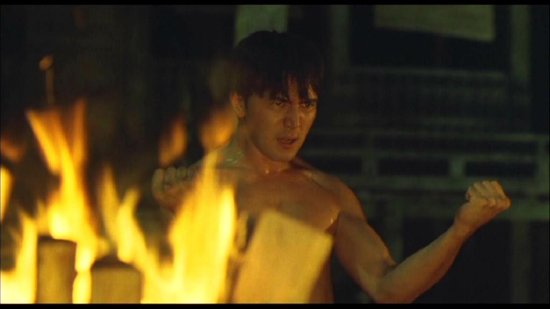
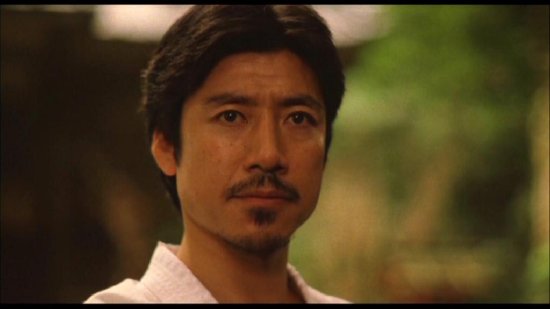
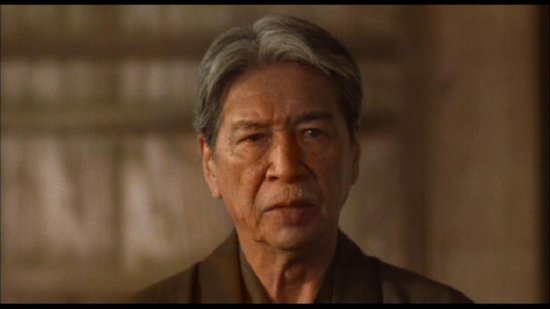
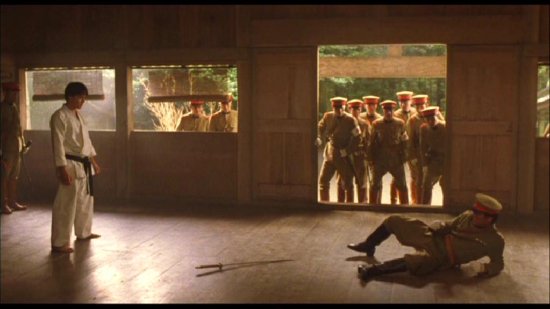
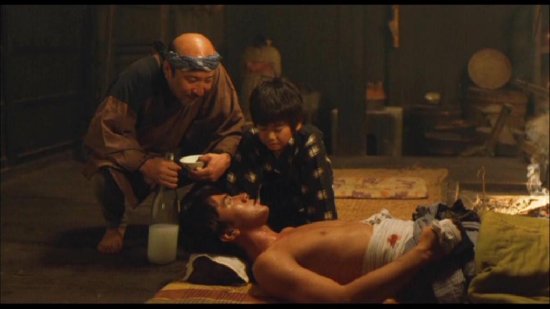
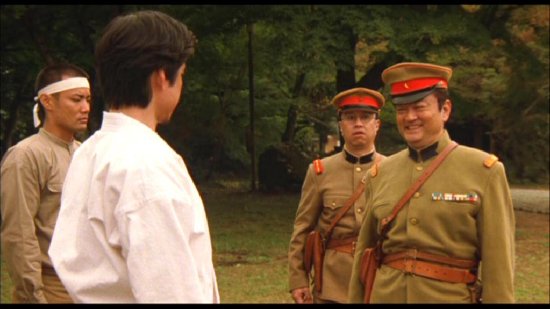
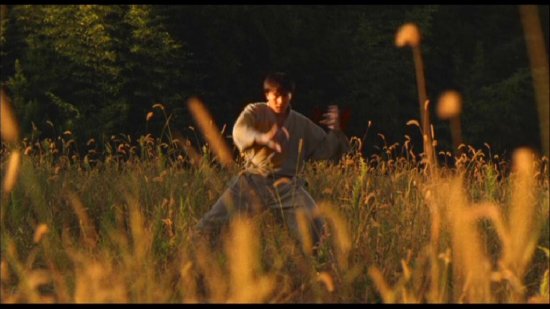
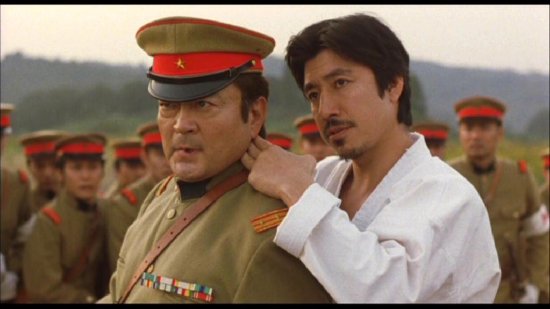
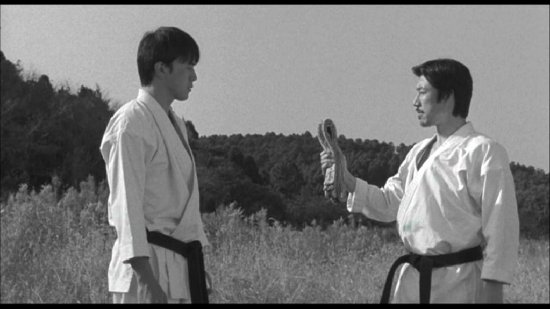
Your Opinions and Comments
Be the first to post a comment!